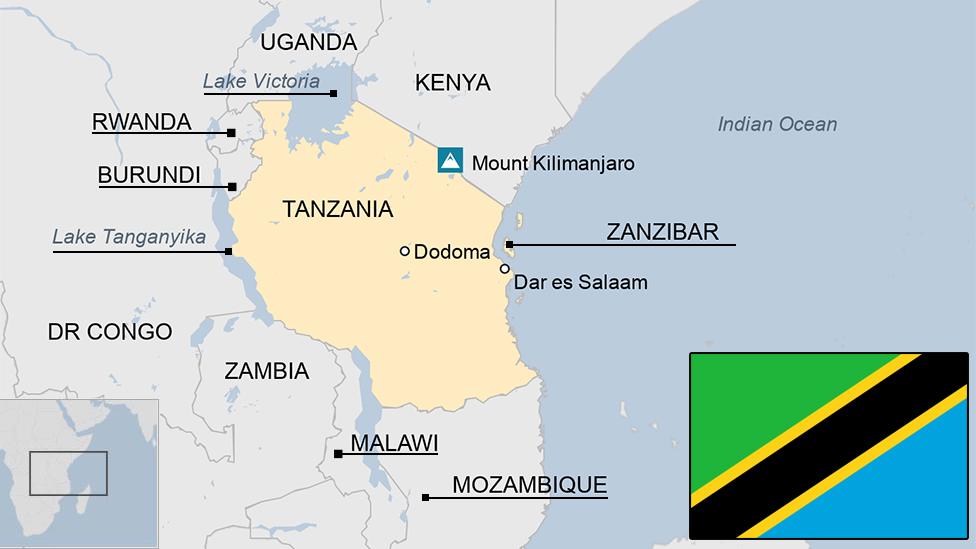John Magufuli - Tanzania's 'Bulldozer' president in profile
- Published
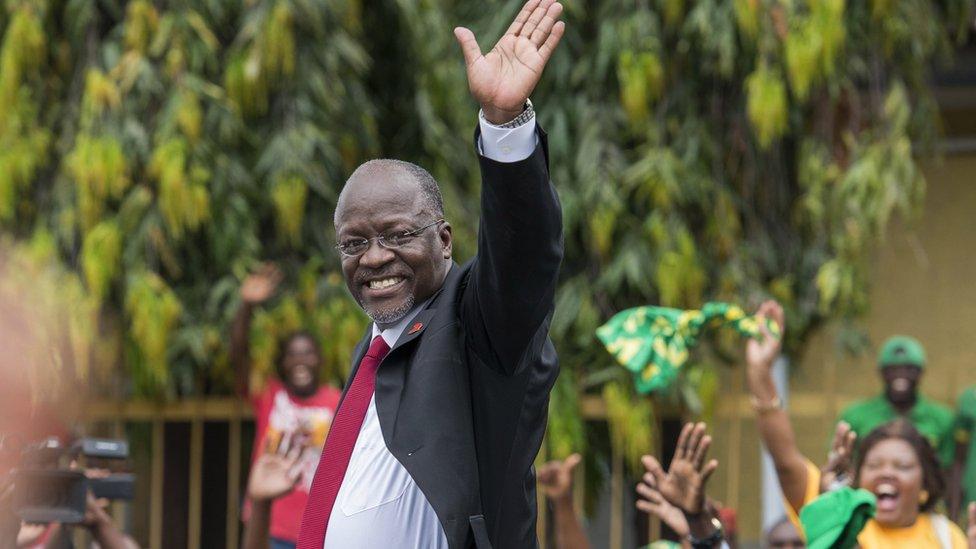
The son of a peasant farmer, John Pombe Magufuli became Tanzania's president on his 56th birthday in 2015 and has gone on to be a controversial leader.
Before he was president he acquired the nickname the bulldozer for driving a programme to build roads as minister for works, and later was hailed for his anti-corruption stance and his distinct dislike for wasting money.
But his time in power has attracted considerable criticism for changes that critics say threaten freedom of expression and business.
On his first day in office in November 2015 he made a big impression.
He made a surprise visit to the finance ministry to check on how many people had actually turned up to work - sending a message that he would not tolerate the reputation Tanzanian civil servants have for absenteeism.
That same week, as an economising measure, he also banned all foreign trips for public servants.
It appeared to work. A central bank report in 2017 revealed that the government had saved $430m (£330m) on foreign travel in just one year.
He also scrapped costly independence day celebrations, instead declaring it a national clean-up day and was pictured picking up rubbish outside State House in the main city, Dar es Salaam.
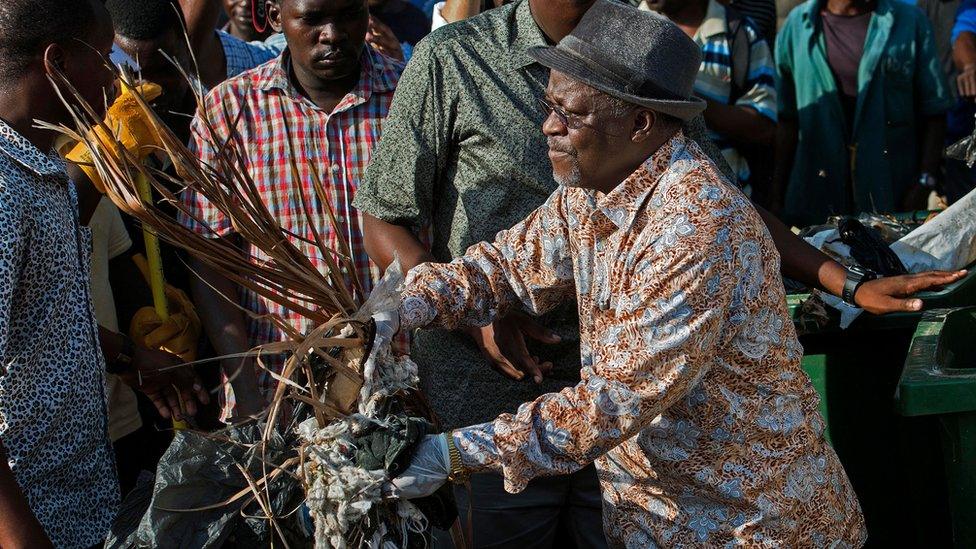
The move attracted both admiration and ridicule on social media. People both inside and outside Tanzania began using the hashtag #WhatWouldMagufuli on Twitter highlighting his no-nonsense attitude and money-saving plans.
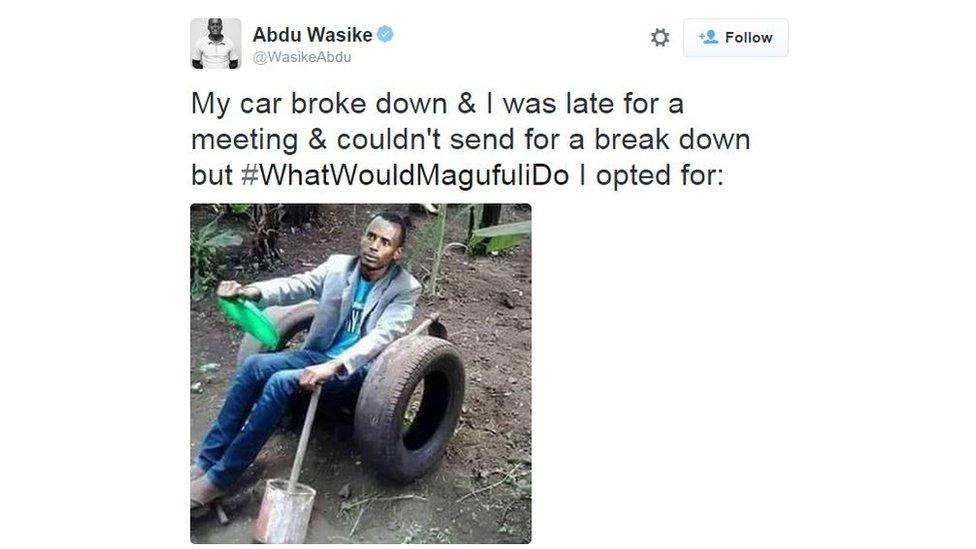
But another money-saving change attracted wide criticism. When he stopped live broadcasts of parliamentary debates in 2016 critics said he was deliberately distancing parliament from the public.
His reputation changed from money-saver to bully, cracking down on opposition and the press.
In 2017, opposition MP Tundu Lissu was shot and seriously injured by gunmen outside his home. Mr Lissu accused the state of trying to kill him and he was charged with hate speech for calling the president a dictator. The government denied any involvement in the attack.
In what was seen by human rights groups as curbing press freedom, the president's administration suspended newspapers. Amnesty International says, external Swahili language newspapers Raia Mwema, Mawio and Mwanahalisi were all temporarily shut down after variously publishing articles criticising the president or linking politicians with corruption.
It adds that journalists also fear being targeted after reporter Azory Gwanda disappeared in 2017 while investigating a series of murders of police and ruling party officials. Another journalist Erick Kabendera is awaiting trial on what Amnesty says are "trumped up" money laundering charges after he wrote an article in the Economist.

Five things about John Magufuli:
He is a former school teacher and industrial chemist
Nicknamed "The Bulldozer"
A devout Catholic with five children
Performed push-ups on the campaign trail to prove he was fit
Cancelled Independence Day celebrations to save money

Married with five children, Mr Magufuli was born in north-western Tanzania's Chato district along the shores of Lake Victoria.
He has portrayed himself as a humble man who came from a poor background.
"Our home was grass thatched and like many boys I was assigned to herd cattle, as well as selling milk and fish to support my family," he said on the campaign trail.
"I know what it means to be poor. I will strive to help improve people's welfare," he added.
Once a maths and chemistry teacher, he went on to become an industrial chemist - and was awarded a doctorate in chemistry from Dar es Salaam University in 2009.
A loyalist to the governing Chama Cha Mapinduzi (CCM) party since 1977, Mr Magufuli was elected an MP in 1995.
For many years he was the minister for works, supervising the execution of mega projects worth trillions of Tanzanian shillings, "but was never implicated in any corruption scandal," Joseph Warioba, a former prime minster and veteran CCM politician, told AFP news agency.
"He could have been the richest politician in the country."
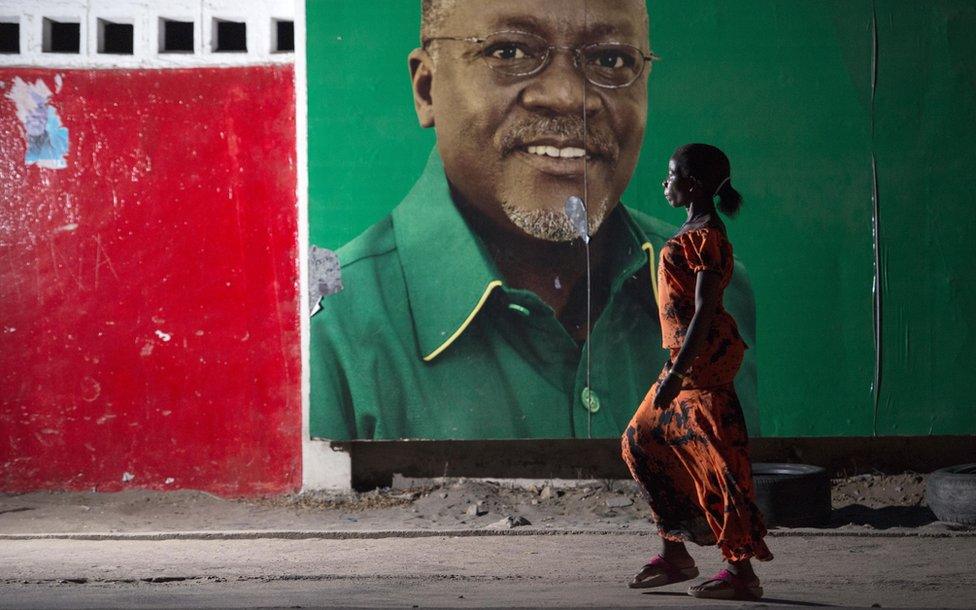
He was never part of CCM's inner circle, so it came as a surprise to his critics that he became its candidate for president.
On the campaign trail he vowed that he would not tolerate corruption and refuted allegations by the opposition that was was physically unfit for the job by performing push-ups at rallies.
It did the job - Mr Magufuli won the poll with 58% of the votes to ex-Prime Minister Edward Lowassa's 40% in a fiercely contested election.
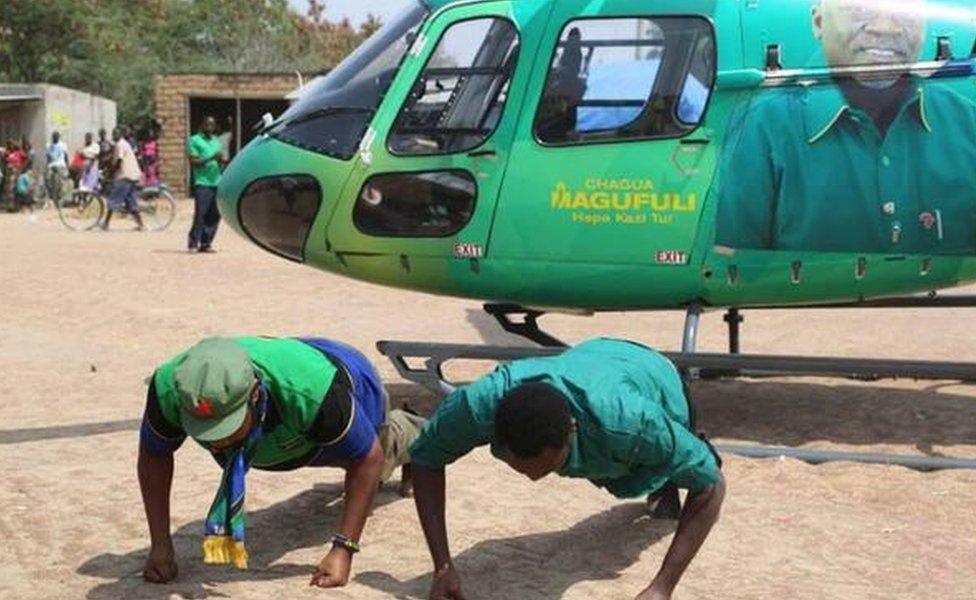
CCM campaigners would also do push-ups to show John Magufuli to show he was fit for office
Mr Magufuli is a staunch Catholic who loves singing in the church choir and playing traditional drums.
His supporters say he upholds traditional family values.
In public life, he scuppered an attempt to overturn the stipulation that pregnant pupils should be expelled from school, a move which attracted international criticism.
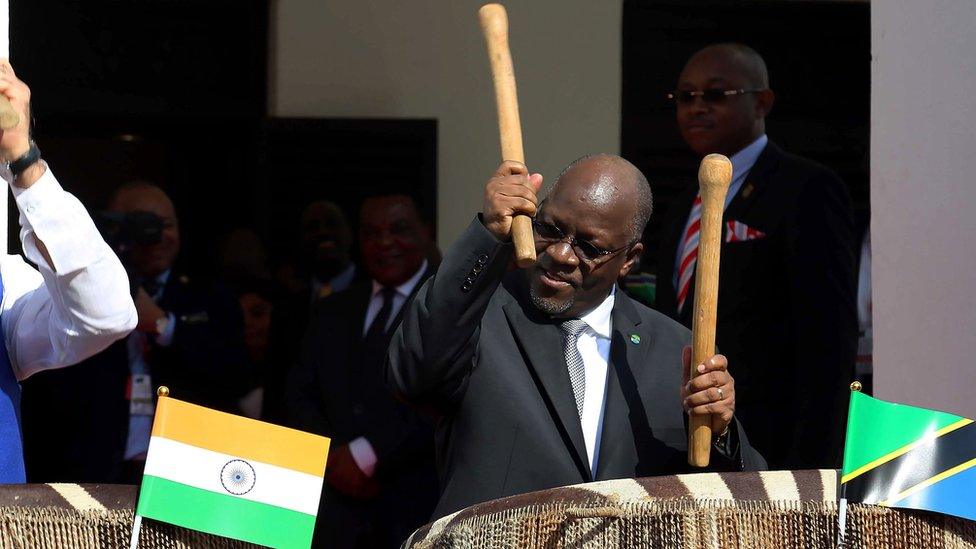
He has also made controversial moves against international businesses.
In 2017 he accused gold miner Acacia of evading tax and slapped the company with a mammoth tax bill of $190bn.
It rocked the country's mining industry.
While Acacia denied any wrongdoing, its parent company Barrick Gold eventually agreed in October 2019 to pay $300m and give the government a 16% stake in their renamed company Twiga.
He is expected to stand for re-election in 2020.
- Published4 November 2015
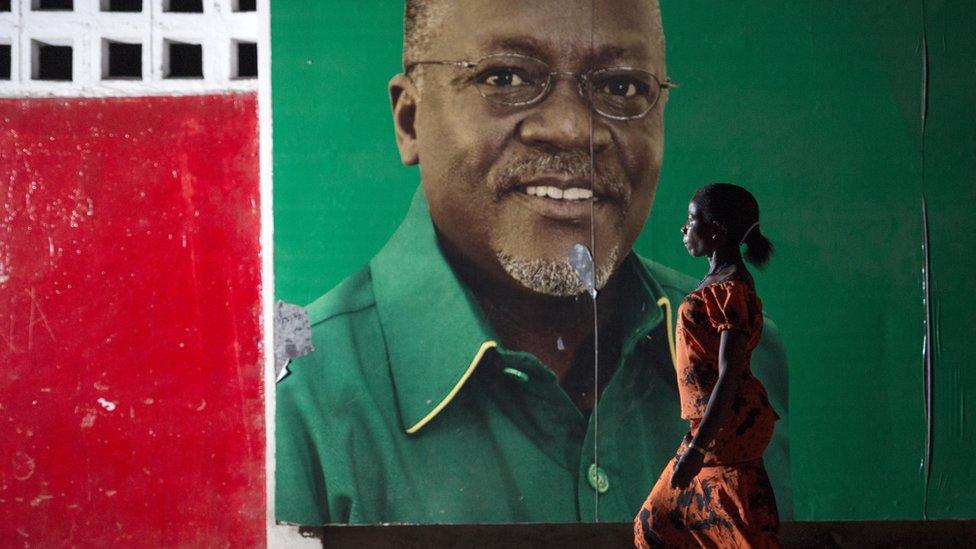
- Published25 October 2015
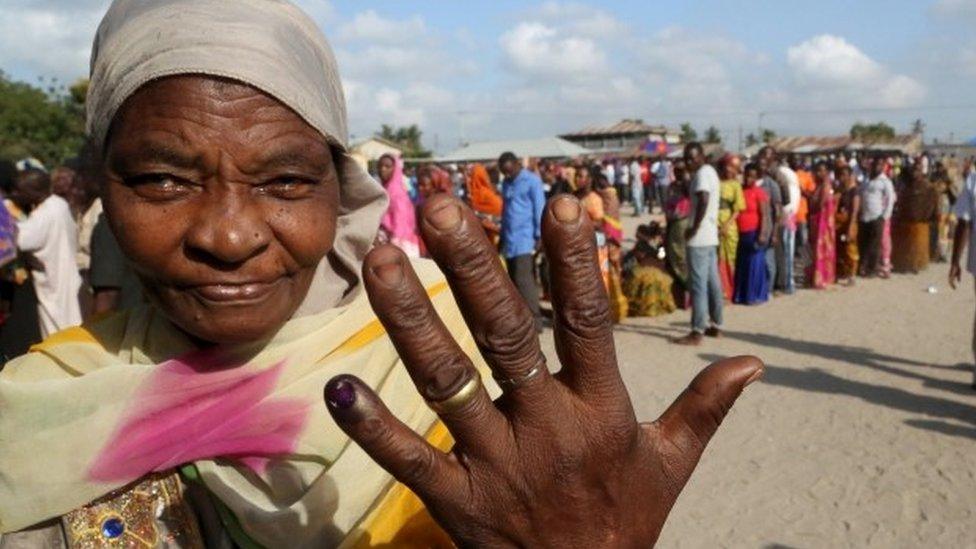
- Published23 October 2015
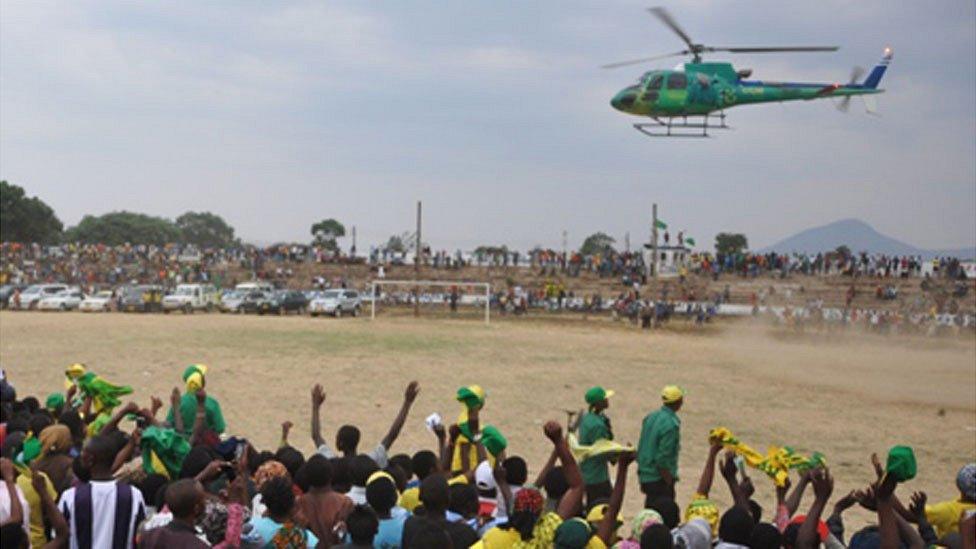
- Published2 May 2023
